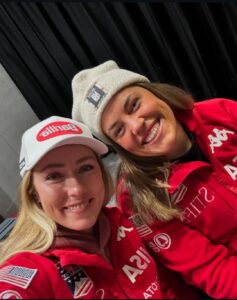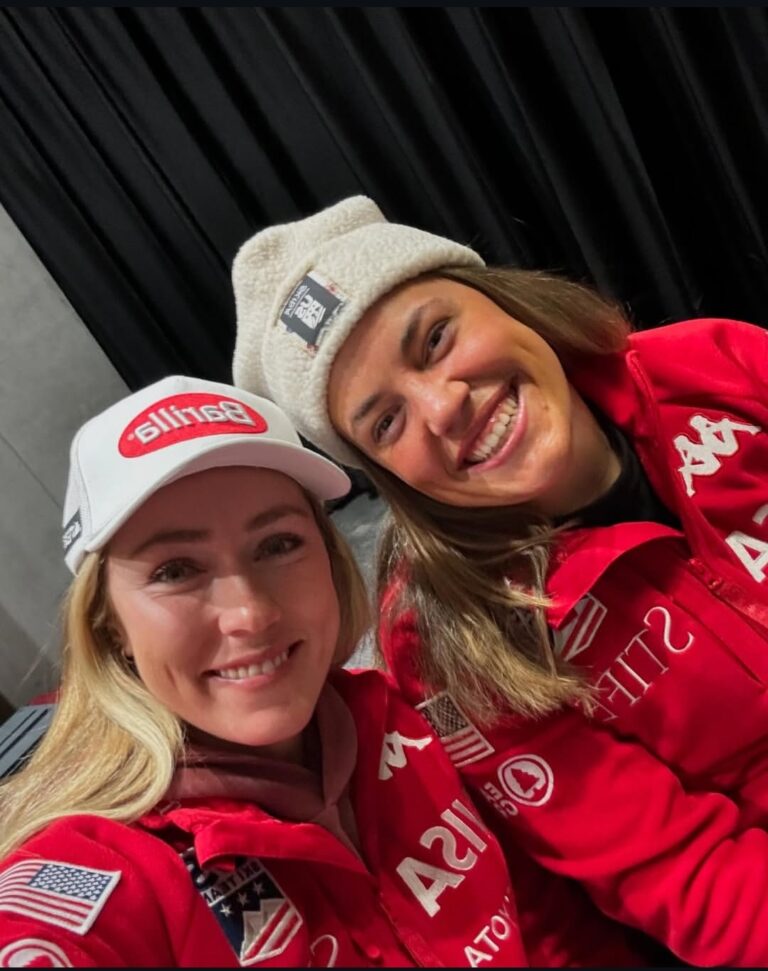Mikaela Shiffrin, the most decorated alpine skier in World Cup history, is approaching the 2025/26 Olympic season with a sharpened focus on giant slalom, a cautious stance on super-G, and a team culture built on radical candor, the 30-year-old American revealed in an exclusive interview with NBC Olympics.
Speaking through her partnership with Lilly to raise awareness for early symptomatic Alzheimer’s disease (ESAD)—a cause close to her heart after losing her paternal grandmother to the illness in 2014—Shiffrin described a pivotal shift in her U.S. Ski Team environment under head coach Karin Harjo.
“This season, open and honest communication—about everything beyond just on-snow training—has become the priority,” Shiffrin said. “It’s always been there, but now it’s front and center.”
The two-time Olympic champion admitted that her résumé of 101 World Cup wins and six overall Crystal Globes can intimidate feedback. “People hesitate to tell me what needs to change because of what I’ve already done,” she explained. “But with Karin, Jamo [Haarala], my mom, and the team, I’ve opened the door: ‘Don’t be afraid to speak.’ The result? A flood of creative, productive input I didn’t even know I was missing.”
Shiffrin confirmed she will not contest downhill this season and will evaluate super-G participation after her first race in St. Moritz on December 14. While she adores the discipline—“Speed made me a better, more complete skier”—she is prepared to relinquish an Olympic starting spot if her form doesn’t warrant selection.
“I’m proud of my speed career, but I won’t take a spot I haven’t earned,” she stated. “We have medal contenders across the board. If the timing doesn’t align, I’m at peace with that.”
The interview also touched on her new podcast, launched last month with fiancé Aleksander Aamodt Kilde as the debut guest. Shiffrin, who confessed to natural introversion, is learning the art of interviewing and plans to feature U.S. teammates, staff, and eventually athletes from other sports.
“Hosting is hard,” she laughed. “I have new respect for journalists. But these conversations are sparking something special.”
On injured rival Petra Vlhová, sidelined since January 2024 with a knee injury, Shiffrin expressed empathy and excitement. The two have stayed in touch via text, with Shiffrin celebrating Vlhová’s recent return to snow.
“Petra’s been out a season and a half. That’s brutal,” Shiffrin said. “Any post of her in boots, on the hill—it’s huge. She’s rebuilding stability, then strength, then capacity. I hope she comes back whole. Racing against her again will be a gift.”
Shiffrin opened the season with a fourth-place giant slalom finish in Sölden—her strongest GS result in nearly two years—behind teammate Paula Moltzan (2nd) and winner Julia Scheib of Austria.
She also updated progress on her Share Winter initiative, tied to her 100th World Cup victory last season. Nearly $500,000 was raised—five times the original goal—funding learn-to-ski and snowboard programs for underserved youth nationwide.
“That money is already creating first-time experiences on snow for kids who otherwise wouldn’t have access,” Shiffrin said. “That’s the real win.”
As the road to Milan Cortina 2026 begins, Shiffrin’s message is clear: success isn’t just measured in medals or records—it’s in the conversations, the comebacks, and the kids discovering the mountain for the first time.
